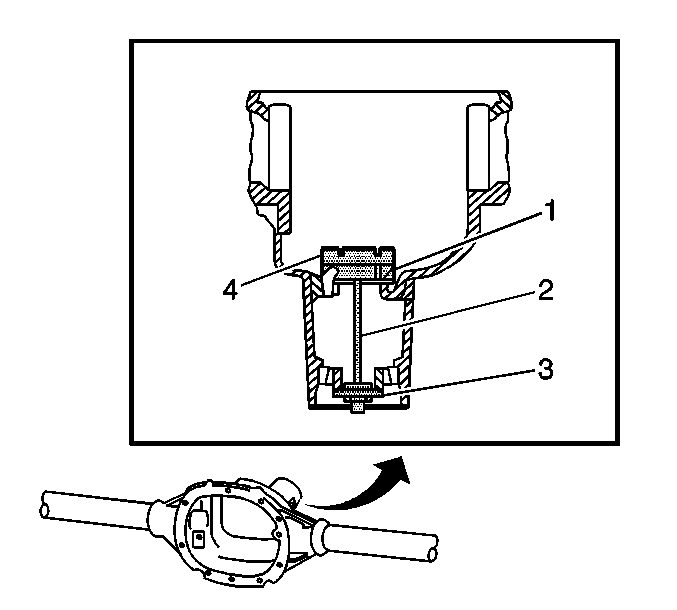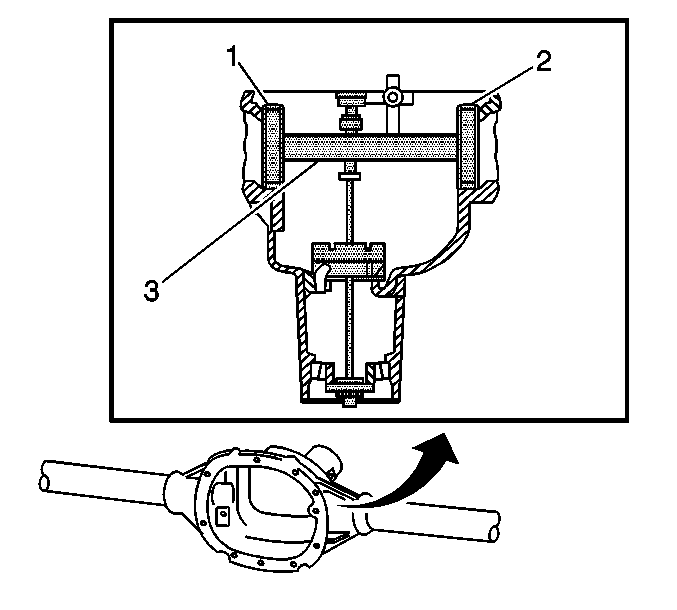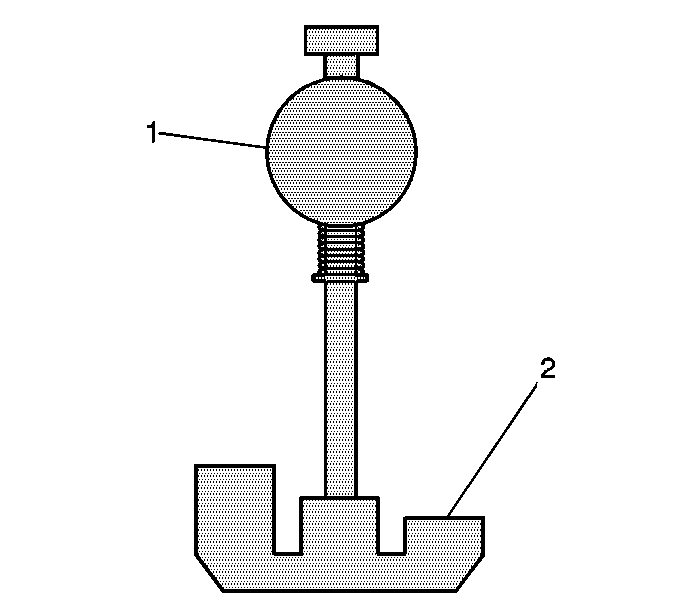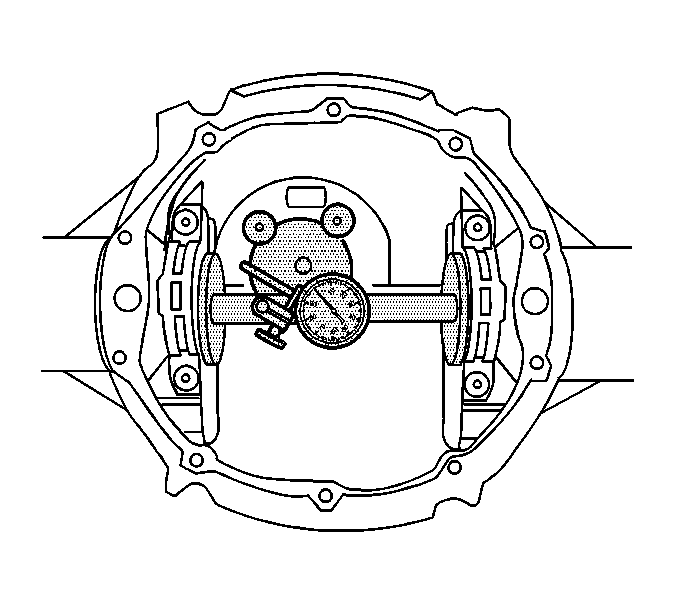Important: Make sure all of the tools, the differential side bearing bores, and
the pinion bearing cups are clean before proceeding.
- Lubricate the pinion bearings with axle lubricant. Refer to
Fluid and Lubricant Recommendations
in Maintenance
and Lubrication.
- Install the pinion bearings into the axle housing.

- Assemble the J 21777-40
(1), the J 21777-43
(2), the J 21777-42
(3), and the J 21777-45
(4) into the axle housing
as shown.
- While holding the J 21777-43
stationary, install an inch-pound torque wrench on the
nut of the J 21777-43
and
tighten the nut until a rotating torque of 2.2 N·m (20 lb in)
is obtained.
Rotate the assembly several times in both directions
in order to seat the pinion bearings.
- Check the rotating torque of the assembly. If the torque is less
than 1.7 N·m (15 lb in), tighten the nut on the J 21777-43
until a rotating
torque of 1.7-2.8 N·m (15-25 lb in)
is obtained.

- Assemble the following components into the differential carrier bore
of the axle housing. Assemble the J 21777-45
(1, 2) to the J 23597-1
(3) as shown.
- Install the bearing caps.
Notice: Use the correct fastener in the correct location. Replacement fasteners
must be the correct part number for that application. Fasteners requiring
replacement or fasteners requiring the use of thread locking compound or sealant
are identified in the service procedure. Do not use paints, lubricants, or
corrosion inhibitors on fasteners or fastener joint surfaces unless specified.
These coatings affect fastener torque and joint clamping force and may damage
the fastener. Use the correct tightening sequence and specifications when
installing fasteners in order to avoid damage to parts and systems.
- Install the bearing cap bolts.
Tighten
Tighten the bearing cap bolts to 75 N·m (55 lb ft).
- Rotate the J 23597-1
within the J 21777-45
.
The J 23597-1
or the
J 21777-1 must rotate back and forth freely within the discs. If
the J 23597-1
or the
J 21777-1 does not rotate freely, disassemble the components, inspect
for proper seating and/or mis-aligned components and re-assemble.

- Align the plunger of the J 23597-1
(1) to the J 23597-11
(2).
- Install the J 8001
to the J 23597-1
or
the J 21777-1 as follows:
| 11.1. | Loosely clamp the J 8001
onto the stem on the J 23597-1
or the J 21777-1. |
| 11.2. | Place the contact pad of the J 8001
onto the mounting post of the J 23597-1
or the J 21777-1. |
| 11.3. | With the contact pad of the J 8001
touching the mounting post of the J 23597-1
or the J 21777-1, loosen the lock nut on the J 8001
and push down on the J 8001
until the needle the J 8001
has turned 3/4 of a turn
clockwise. |
| 11.4. | Tighten the clamp on the J 8001
finger tight. |
- Move the plunger of the J 23597-1
or the J 21777-1 back and forth until the needle
of the J 8001
indicates
the greatest deflection.
The deflection is the point where
the needle changes direction.

- At the greatest point
of deflection, move the housing of the J 8001
until the needle indicates zero.
- Move the plunger of the J 23597-1
or the J 21777-1 back and forth again to verify the
zero setting. Adjust the housing of the J 8001
as necessary to set the needle to zero.
- Rotate the plunger of the J 23597-1
from the J 23597-11
until it no longer touches the J 23597-11
.
- The value indicated on the J 8001
is the thickness of the shim needed in order to set the depth
of the pinion.
- Select the shim that indicates the proper thickness. Measure the
shim with a micrometer in order to verify that the thickness is correct.
- Remove the pinion depth setting tools.
- Remove the pinion bearings.
- Install the pinion shim between the pinion gear and the inner
pinion bearing. Refer to
Drive Pinion Bearings Replacement
.




